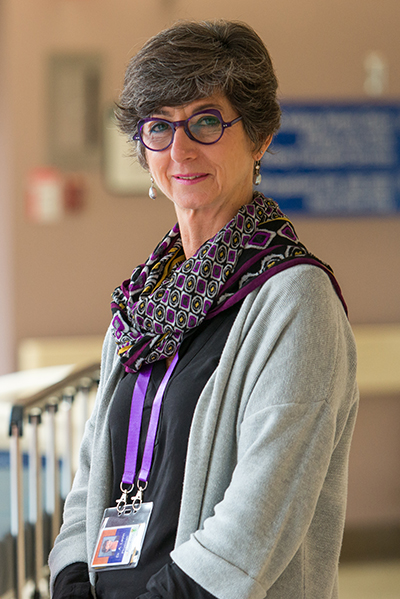A team from British Columbia will co-lead Canada’s largest-ever attempt to improve care for people with kidney disease, aimed at reducing the number of people who need dialysis or organ transplants, or who develop related illnesses that are debilitating or deadly.
The five-year, $59 million initiative represents the country’s biggest expenditure for chronic kidney disease (CKD), a condition that affects one in 10 Canadians, at a cost of over $50 billion a year. It will explore various fixes: broader screening, especially among indigenous people, who are more at risk of developing CKD; potential biomarkers that enable earlier diagnosis and predict who is at most risk for kidney failure; drugs or stem cells that could slow the disease’s progression; education about proven strategies for diet and water consumption; and new ways of providing care, especially for people who live far from kidney specialists.
Adeera Levin, head of the division of nephrology at the University of British Columbia and executive director of the B.C. Renal Agency, is leading the project, called the Canadians Seeking Solutions and Innovations to Overcome Chronic Kidney Disease Network, with the University of Calgary’s Braden Manns.
The Canadian Institutes of Health Research, through its Strategy for Patient-Oriented Research, awarded the team $12.5 million, while 30 other organizations – including the Kidney Foundation of Canada and the Canadian Society of Nephrology – provided $46.5 million in funds or in-kind support. Many Canadian universities are participating in one or more of the projects, and people living with kidney disease are participating in the projects’ design, management and follow-through.
A neglected disease
CKD is an umbrella term for dozens of different conditions that weaken and sometimes destroy an organ with several crucial functions: removing waste products from the body, maintaining a proper balance of fluids, releasing hormones that control blood pressure, producing vitamin D and controlling production of red blood cells. Some forms of CKD can be diagnosed as early as birth; in other cases, it doesn’t appear until late in life. Heart disease and diabetes are two of the most common causes.
Despite the prevalence of CKD, the most dramatic advances in care – dialysis and transplantation – have been limited to the small fraction of people whose kidneys ultimately give out. Many more people live with a less advanced form of the disease but still in a weakened state, relying on medications to lessen the symptoms and long-term effects, and often developing heart disease (the major cause of death of people with kidney disease), bone disease, high blood pressure and nerve damage.
Despite the need for more knowledge about kidney disease, nephrology has the lowest number of clinical trials of any other medical field, and people with CKD, due to the complexity of their illness, are usually excluded from studies of heart disease and diabetes.
“Until now, we haven’t been able to muster the resources and organizational focus to focus on the vast numbers of people with early- and mid-stage kidney disease,” said Levin, who is also a consulting nephrologist at St. Paul’s Hospital, a scientist with the Centre for Health Evaluation and Outcome Sciences, and president of the International Society of Nephrology. “This grant is really a first in recognizing chronic kidney disease as a significant health problem, but one that holds so much potential for improvement for patients. This can be a model for how we approach other complex chronic diseases.”
Fighting on several fronts
One clinical trial will test stem cells that have been shown in animal models to improve kidney function; another will examine drugs used for diabetes and arthritis that also hold potential for treating CKD.
Other projects will explore changes in care delivery. One study will provide family physicians and their patients with information about an individual’s risk of developing CKD, to see if more information leads to better outcomes. Another team will assess patients’ preferences in dealing with their health care providers, including their willingness to use technology to communicate with physicians or even to partially manage their own care using software.
The initiative also will try to improve the “last resort” therapies of dialysis, in which a person’s blood is regularly cleansed, and organ transplantation. One project will test whether certain drugs or other treatments can reduce itching and restless leg syndrome, which are common side effects of dialysis. Another project will explore ways of streamlining the process by which people voluntarily donate one of their kidneys.
“The researchers want to know what patients need, and have put patients and their caregivers at the forefront of this initiative,” said Kate Huffman, a kidney patient from Coquitlam and co-leader of the initiative’s patient council. “This is something that has never really done before with kidney disease – it’s a new way of doing research that could make a huge difference for people living with this condition.”
